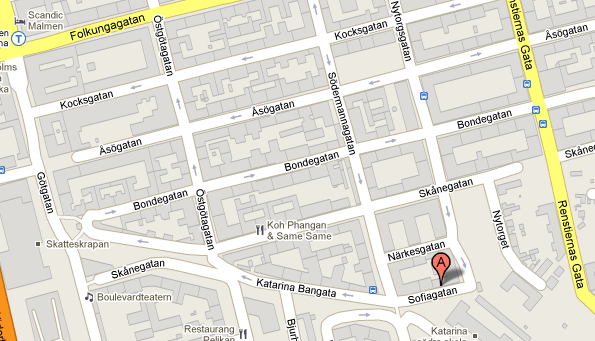Aktuellt
Social Media Week NYC

Inculture will participate in Social Media Week New York on Wednesday 9th february, 9 AM (New York time). The session is named ”Social media around the world”. Freddie Laker will moderate a roster of on-stage and videocast social media enthusiasts. Through first-hand storytelling and demos, these panelists will discuss how they incorporate social media into…
The perfect home or the perfect me?

If I buy that new remodeled kitchen aid, I´m sure I´ll bake more bread. And if I move to that area close to the art museum I´m sure I´ll go there much more often. And if I get that pituresque little house I´ll finally be truly happy! Recognize these thoughts? Striving for something better is…
A new year – time for CCOs?

Grant McCracken suggests that every company in the future will need a Chief Culture Officer, someone who carries the ethnographic way of thinking straight into the heart of the company: makes it part of its strategic thinking. To make this happen is not solely up to the companies, it is up to us as ethnographers…
Generation Noll Koll 3

Our expression refer to the notion that we have a younger generation that doesn’t know what’s going on. It’s used as an allusion to how younger people define media, namely ”to know what’s going on”, or in Swedish, ”att ha koll”. This phenomenon is getting increasingly attention and the phrase is gradually being adapted by…
Discover or measure already known?!

We think this needs to be repeated over and over again… Basically, qualitative methods are used to discover things and quantitative methods are used to measure that which is already known. Quantitative data refers to variable data, i.e. data which should conclude with quantities of some kind. Investigations of the quantitative kind aim at producing …
New office!

On monday we move into our new office at Sofiagatan 5, Södermalm, Stockholm. We will sit togehther with Small World. A fantastic place, both surroundings and the office. Welcome to visit us!
Don’t touch my cow

Tomorrow we will present the results from the ethnographic project about ecology and sustainability at Skånes Livsmedelsakademi. After spending a lot of time together with consumers in their homes and when they buy food we can state that the word ”ecology” is more blurring than ever for them. Instead consumers find other concepts that is…
Cutting-edges of ethnography

This weekend we will attend an interesting workshop in Lund initiated by Professor Orvar Löfgren called Irregular Ethnographies. The theme for the workshop is to discuss experiments with new approaches and persepctives on ethnography. What do we learn from taking ethnography into new fields?
Ethnographic study about Idol

This week our study about the tv programme Idol will be available for everyone who is interested. Just click on this link to Medierådet and order your copy. The report tell you all about the methods used and all insights found!
Food is a cultural bearer

What is one of the first things one tries when one visits a (new) country? Just what I thought – food! I mean, who would go to Thailand and not eat a Tom Yam Kung or who misses out on a Tiramisú in Italy?!
Volvo Subject60 experiment

This report and film is the result of our ethnographic observational study of the Volvo Subject60 tour in Berlin, London, Milan, Paris and Madrid. At each event experiments were weaved into the party environment to trigger the participant’s naughty behavior. An anthropologist was engaged at each event to execute observations with focus on behavior, facial…
The world’s most modern country

This summer SVT is once again sending the TV programme Världens modernaste land, a series that discuss different issues about Swedish culture. A relief for all of us that get quite tired of football… In programme number 4 Katarina Graffman is guest together with Peter Englund. View here.
